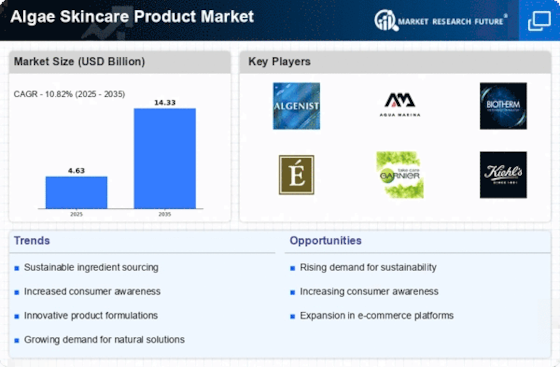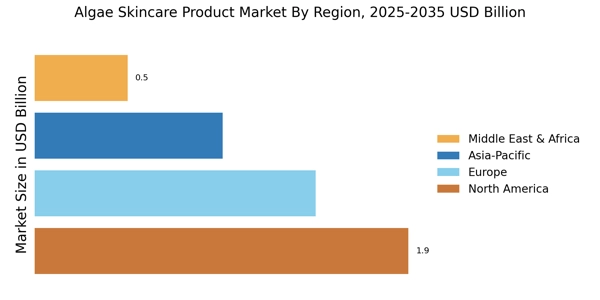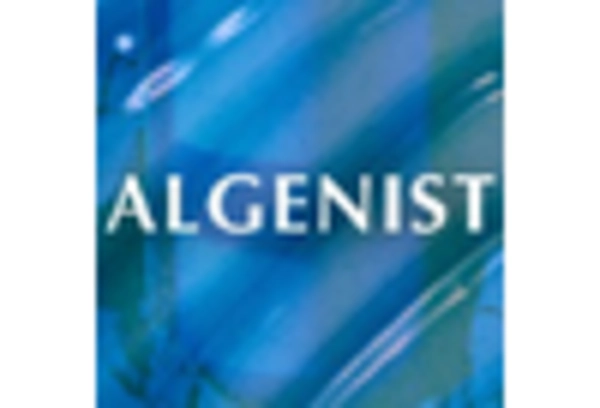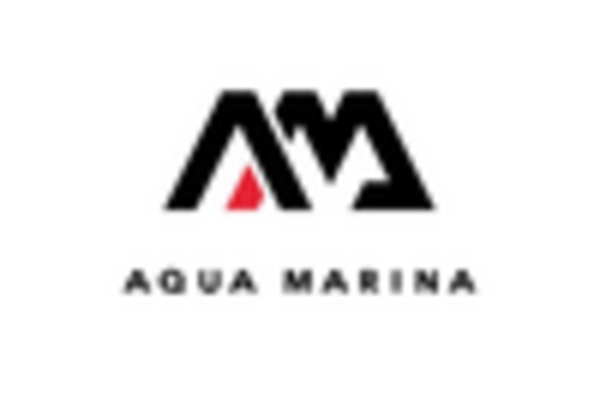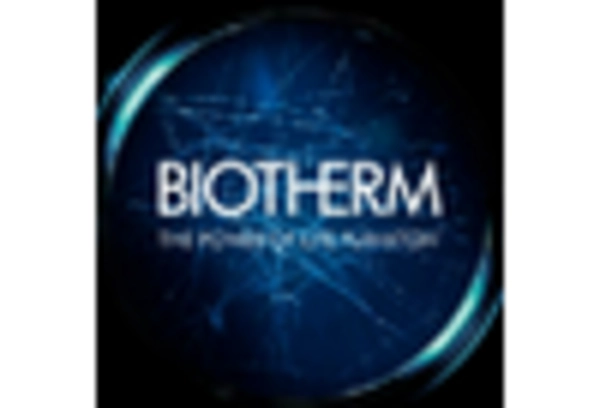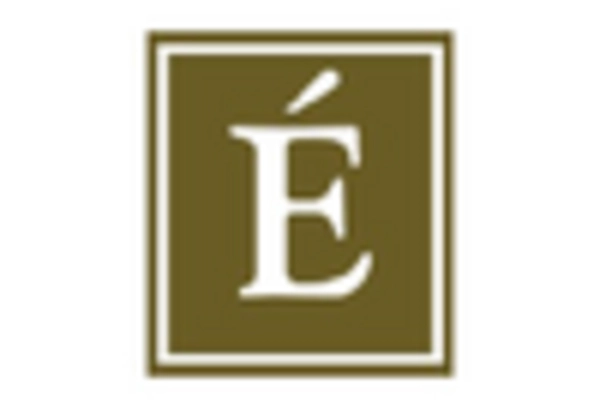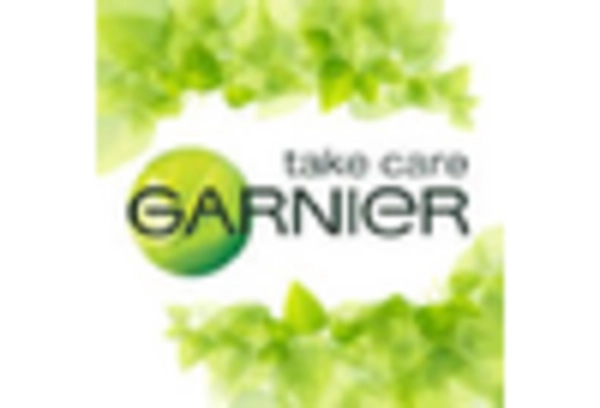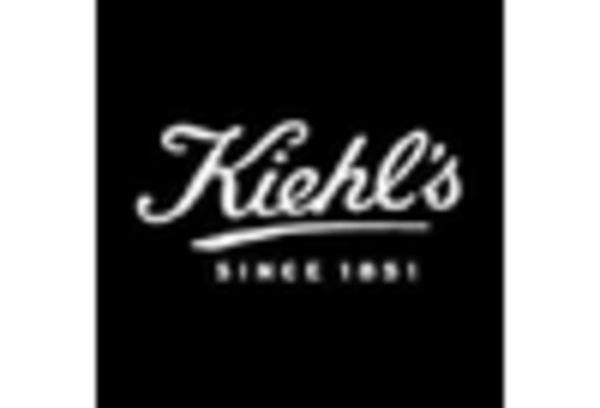Innovative Product Development
Innovation plays a crucial role in the algae skincare product Market, as brands continuously seek to differentiate their offerings. The incorporation of algae into various formulations, such as serums, masks, and moisturizers, showcases the versatility of this ingredient. Companies are investing in research and development to explore new algae species and their unique properties, which could lead to the creation of novel products that address specific skin concerns. For instance, certain algae types are known for their anti-aging properties, while others may provide hydration or soothing effects. This focus on innovation is likely to attract a diverse consumer base, as individuals seek tailored solutions for their skincare needs. The market is expected to witness a surge in new product launches, further solidifying the position of algae in the skincare industry.
Rising Demand for Natural Ingredients
The Algae Skincare Product Market is experiencing a notable shift towards natural and organic ingredients. Consumers are increasingly aware of the potential harmful effects of synthetic chemicals in skincare products. This awareness drives demand for products that utilize algae, which are perceived as safe and beneficial. Algae are rich in vitamins, minerals, and antioxidants, making them an attractive option for consumers seeking effective skincare solutions. Market data indicates that the natural skincare segment is projected to grow at a compound annual growth rate of over 10% in the coming years, highlighting the increasing preference for algae-based products. This trend suggests that brands focusing on algae as a primary ingredient may capture a larger share of the market, appealing to environmentally conscious consumers who prioritize sustainability.
Regulatory Support for Natural Products
The Algae Skincare Product Market is witnessing favorable regulatory support for natural and organic products. Governments and regulatory bodies are increasingly recognizing the importance of promoting safe and effective skincare solutions. This support often translates into guidelines and certifications that encourage the use of natural ingredients, including algae, in cosmetic formulations. Such regulations not only enhance consumer trust but also provide a framework for brands to develop and market their products. As the demand for clean and safe skincare continues to grow, regulatory backing for algae-based products may facilitate market entry for new players and encourage existing brands to innovate. This supportive environment is likely to contribute to the overall growth of the algae skincare market, as more consumers seek products that meet their safety and efficacy standards.
Growing Awareness of Environmental Impact
The Algae Skincare Product Market is benefiting from a heightened awareness of environmental sustainability among consumers. As individuals become more conscious of their ecological footprint, they are gravitating towards products that are not only effective but also environmentally friendly. Algae cultivation is often considered a sustainable practice, as it requires fewer resources compared to traditional crops. This aspect resonates with consumers who prioritize eco-friendly products. Furthermore, brands that emphasize sustainable sourcing and production methods are likely to gain a competitive edge in the market. Research indicates that a significant percentage of consumers are willing to pay a premium for products that align with their values, suggesting that the demand for algae-based skincare products will continue to rise as sustainability becomes a key purchasing criterion.
Influence of Social Media and Beauty Trends
The Algae Skincare Product Market is significantly influenced by social media and emerging beauty trends. Platforms such as Instagram and TikTok have become vital channels for beauty brands to showcase their products and engage with consumers. The visual nature of these platforms allows for the effective promotion of algae-based skincare products, highlighting their unique benefits and results. Influencers and beauty enthusiasts often share their experiences with algae-infused products, creating a buzz that can lead to increased consumer interest and sales. Additionally, trends such as clean beauty and wellness are gaining traction, further propelling the popularity of algae in skincare. As consumers seek products that align with these trends, the market for algae skincare is likely to expand, driven by the power of social media and the influence of beauty culture.


